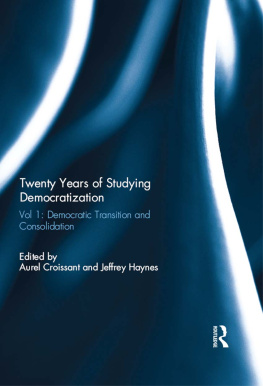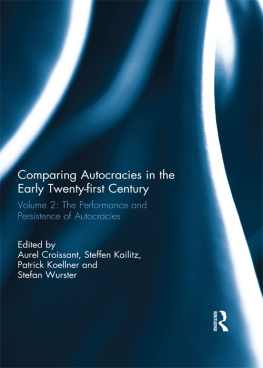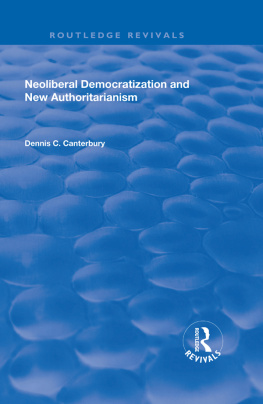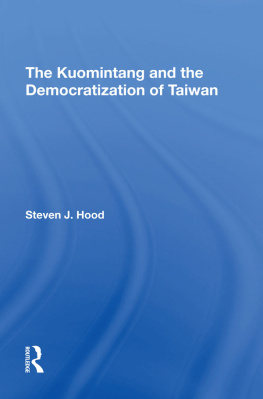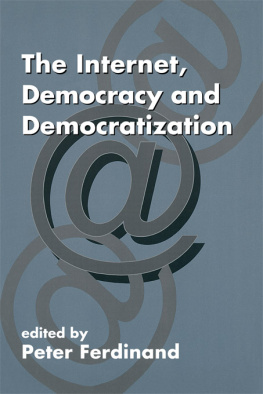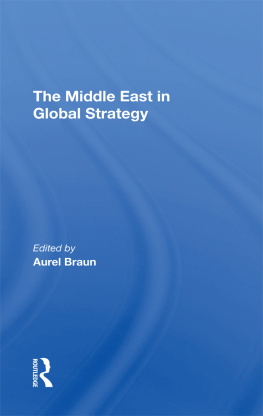Twenty Years of Studying Democratization
Democratization emerged at a time of epochal change in global politics: the twin impacts of the end of the Soviet Union and the speeding up and deepening of globalization in the early 1990s meant a whole new ball game in terms of global political developments. The journals first issue appeared in early 1994. Over time, the editorial position has been consistently to focus on the third wave of democracy and its aftermath. The third wave is the most recent example of a long-term, historical trend towards more democratically viable regimes and away from authoritarian systems and leaders. In short, the journal promotes a better understanding of democratization defined as the way democratic norms, institutions and practices evolve and are disseminated both within and across national and cultural boundaries.
Over the years, the many excellent articles that we have featured in the journal have shared our focus on democratization, viewed as a process. The journal has sought and continues to seek to build on the enduring scholarly and of course popular interest in democracy, how and why it emerges, develops and becomes consolidated. Our emphasis over the last twenty years has been contemporary and the approach comparative, with a strong desire to be both topical and authoritative.
We include special reference to democratization in the developing world and in post-communist societies. In sum, just as twenty years ago, the journal today aims to encourage debate on the many aspects of democratization that are of interest to policy-makers, administrators and journalists, aid and development personnel, those involved in education, and, perhaps above all, the tens of millions of ordinary people around the world who do not (yet) enjoy the benefits of living under democratic rule. The two dozen chapters in this three-volume set are emphatic proof of the power of the written word to induce debate, uncertainty, and ultimately progress towards better forms of politics, focused on the achievement of the democratic aspirations of men and women everywhere.
Aurel Croissant is Professor of Political Science at the Institute of Political Science, Ruprecht-Karls-University, Heidelberg, Germany.
Jeffrey Haynes is Associate Dean, Faculty of Social Sciences and Humanities, Professor of Politics, and Director of the Centre for the Study of Religion, Conflict and Cooperation, London Metropolitan University, UK.
Democratization Special Issues
Series editors:
Jeffrey Haynes, London Metropolitan University, UK
Aurel Croissant, University of Heidelberg, Germany
The journal, Democratization, emerged in 1994, during the third wave of democracy, a period which saw democratic transformation of dozens of regimes around the world. Over the last decade or so, the journal has published a number of special issues as books, each of which has focused upon cutting edge issues linked to democratization. Collectively, they underline the capacity of democratization to induce debate, uncertainty, and perhaps progress towards better forms of politics, focused on the achievement of the democratic aspirations of men and women everywhere.
Conflicting Objectives in Democracy Promotion
Do All Good Things Go Together?
Edited by Julia Leininger, Sonja Grimm and Tina Freyburg
Political Opposition in Sub-Saharan Africa
Edited by Elliott Green, Johanna Sderstrm and Emil Uddhammar
Comparing Autocracies in the Early Twenty-First Century
Two-volume set:
1. Unpacking Autocracies - Explaining Similarity and Difference
2. The Performance and Persistence of Autocracies
Edited by Aurel Croissant, Steffen Kailitz, Patrick Koellner and Stefan Wurster
Twenty Years of Studying Democratization
Three-volume set:
1. Democratic Transition and Consolidation
2. Democratization, Democracy and Authoritarian Continuity
3. Building Blocks of Democracy
Edited by Aurel Croissant and Jeffrey Haynes
Previously published books from Democratization
Coloured Revolutions and Authoritarian Reactions
Edited by Evgeny Finkel and Yitzhak M. Brudny
Ethnic Party Bans in Africa
Edited by Matthijs Bogaards, Matthias Basedau and Christof Hartmann
Democracy Promotion in the EUs Neighbourhood
From Leverage to Governance?
Edited by Sandra Lavenex and Frank Schimmelfennig
Democratization in Africa: Challenges and Prospects
Edited by Gordon Crawford and Gabrielle Lynch
Democracy Promotion and the Colour Revolutions
Edited by Susan Stewart
Promoting Party Politics in Emerging Democracies
Edited by Peter Burnell and Andre W. M. Gerrits
Democracy and Violence
Global Debates and Local Challenges
Edited by John Schwarzmantel and Hendrik Jan Kraetzschmar
Religion and Democratizations
Edited by Jeffrey Haynes
The European Unions Democratization Agenda in the Mediterranean
Edited by Michelle Pace and Peter Seeberg
War and Democratization
Legality, Legitimacy and Effectiveness
Edited by Wolfgang Merkel and Sonja Grimm
Democratization in the Muslim World
Changing Patterns of Authority and Power
Edited by Francesco Volpi and Francesco Cavatorta
Religion, Democracy and Democratization
Edited by John Anderson
On the State of Democracy
Edited by Julio Faundez
First published 2014
by Routledge
2 Park Square, Milton Park, Abingdon, Oxon, OX14 4RN
and by Routledge
711 Third Avenue, New York, NY 10017
Routledge is an imprint of the Taylor & Francis Group, an informa business
2014 Taylor & Francis
All rights reserved. No part of this book may be reprinted or reproduced or utilised in any form or by any electronic, mechanical, or other means, now known or hereafter invented, including photocopying and recording, or in any information storage or retrieval system, without permission in writing from the publishers.
Trademark notice: Product or corporate names may be trademarks or registered trademarks, and are used only for identification and explanation without intent to infringe.
British Library Cataloguing in Publication Data
A catalogue record for this book is available from the British Library
ISBN 13: 978-0-415-72022-9
Typeset in Times New Roman
by Taylor & Francis Books
Publishers Note
The publisher accepts responsibility for any inconsistencies that may have arisen during the conversion of this book from journal articles to book chapters, namely the possible inclusion of journal terminology.
Disclaimer
Every effort has been made to contact copyright holders for their permission to reprint material in this book. The publishers would be grateful to hear from any copyright holder who is not here acknowledged and will undertake to rectify any errors or omissions in future editions of this book.

